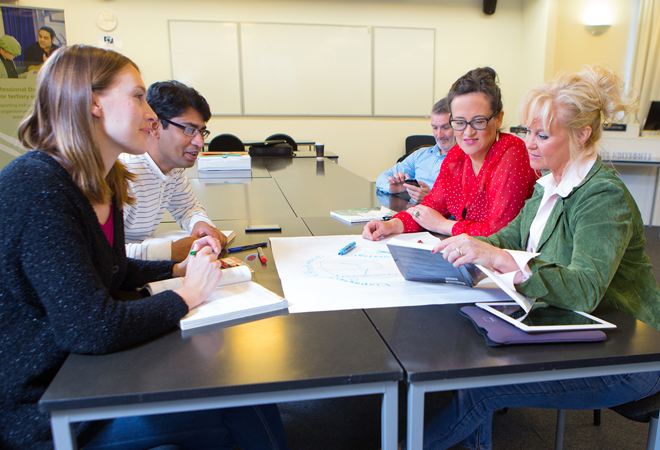AI and assessment integrity
How do we ensure assessments remain meaningful when AI tools can generate essays or solve equations? This section explores how tertiary educators can maintain academic integrity and redesign assessment for authenticity. It draws on both local research and international guidance to help navigate originality, authorship, and ethical use of AI in learner evaluation.
| At the bottom of the page are some questions that you can use as a starting point for discussions about AI or where to go next with integrating GenAI tools into your own teaching practice. |
Can AI be used without undermining assessment?
As AI tools become more common, educators are asking a big question: how do we keep assessments fair and meaningful? Tools like ChatGPT can generate essays, solve maths problems, or summarise texts. This doesn’t mean we should panic — but it does mean we need to rethink what assessment looks like in an AI-enabled world.
Keeping integrity without losing innovation
AI can challenge traditional assessments — but it also opens doors for more authentic, learner-centred evaluation. When used well, AI might help scaffold learning, personalise support, or act as a ‘thinking partner’ — without replacing the learner’s voice.
Key questions to consider:
- What are you really assessing — the product, or the process?
- Can learners use AI transparently and still demonstrate original thinking?
- How might oral, project-based, or in-person assessments offer more reliable indicators of learning?
Educators across Aotearoa are already experimenting with ways to reframe assessment tasks — from reflective commentaries on AI use, to collaborative projects where process matters as much as product.
Practical steps to support integrity
You don’t need to redesign everything overnight. Start by:
- Talking openly with learners about appropriate AI use
- Including AI-related conditions in assessment briefs
- Trialling one redesigned task where AI use is expected, not hidden
These shifts help learners develop ethical judgement and digital responsibility — crucial skills for future workplaces.
Where to now?
Consider these questions to inform your next steps with GenAI tools.
Educator:
|
|
How might I rethink assessment to both leverage AI and maintain academic integrity? |
Team Leader / Manager:
|
|
What kinds of assessment practices are emerging that integrate AI without compromising learner trust? |
Governance / Policy Role:
|
|
Do our current policies support innovation in assessment, or are they inadvertently creating fear and uncertainty? |
All:
|
|
How can we centre learner agency and authenticity in a world where AI can generate anything? |
Want to explore more?
Practical tips | AI, assessment, and academic integrity
This page helps educators rethink assessment in an AI-enabled world — with a focus on fairness, process, and reflective practice.
Redesigning assessment for authenticity, integrity, and future-ready learning.
